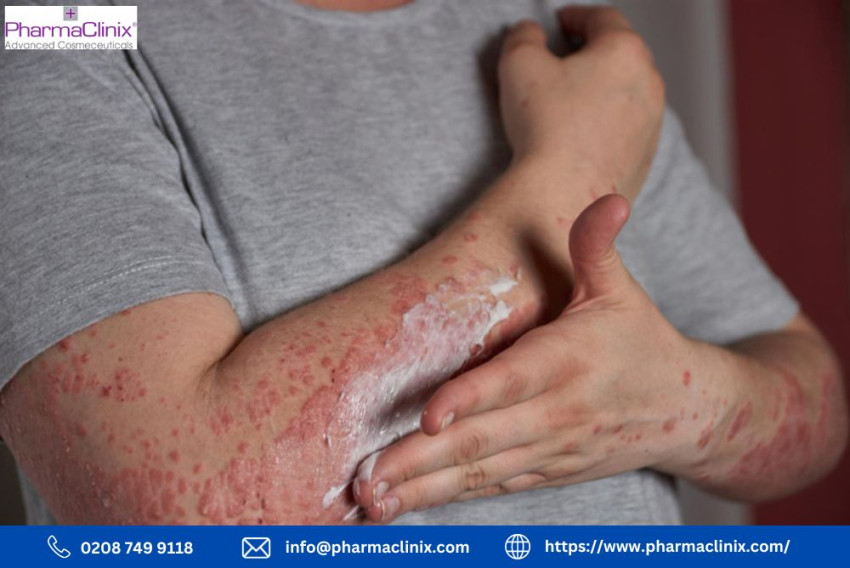
Are you tired of battling post-inflammatory hyperpigmentation (PIH) caused by eczema? You're not alone. Countless individuals face the frustration of dealing with stubborn dark patches that linger long after the initial flare-up subsides. But fear not, for there is hope! Understanding the root causes, recognizing its manifestations, and mastering effective management strategies are key steps in your journey to clearer, healthier skin.
What is Post-Inflammatory Hyperpigmentation (PIH)?
Post-inflammatory hyperpigmentation (PIH) refers to the darkening of the skin that occurs after an inflammatory skin condition, such as eczema, heals. It is a result of excess melanin production in response to inflammation or injury.
Causes of Post-Inflammatory Hyperpigmentation in Eczema
Several factors contribute to the development of PIH in eczema, including:
Inflammation: Persistent inflammation in eczematous skin triggers melanocytes, leading to increased melanin production and subsequent hyperpigmentation.
Scratching and Irritation: Continuous scratching and friction aggravate eczema, further intensifying inflammation and stimulating melanin production.
Genetic Predisposition: Some individuals are genetically predisposed to develop PIH in response to skin inflammation, including eczema.
Manifestations of Post-Inflammatory Hyperpigmentation
PIH presents as dark patches or spots on the skin affected by eczema. These areas often appear darker than the surrounding skin and can persist for months, or even years, after the initial inflammation resolves.
Empowerment through Education: Unlocking Effective Solutions
But fret not, as there are effective strategies to combat PIH and reclaim control over your skin. Armed with knowledge and guided by experts, you can embark on a journey towards clearer, healthier skin:
Tailored Treatment Plans: Consult with a dermatologist to devise a personalized treatment plan tailored to your unique needs and skin type. Topical creams containing ingredients like hydroquinone, retinoids, or corticosteroids may be prescribed to lighten hyperpigmented areas and inhibit melanin production.
Sun Shielding: Shield your skin from further damage by incorporating broad-spectrum sunscreen with a high SPF into your daily skincare routine. Sun protection is paramount in preventing the exacerbation of PIH.
Gentle Skincare Regimen: Adopt a gentle skincare regimen that focuses on nourishing and soothing the skin, while avoiding harsh chemicals or irritants that can trigger inflammation and worsen PIH.
Advanced Dermatological Procedures: For severe cases, dermatological procedures such as chemical peels or laser therapy may be recommended to target stubborn hyperpigmented areas and promote skin regeneration.
Conclusion: Empowering Individuals with Knowledge
Post-inflammatory hyperpigmentation in eczema can be distressing, but with proper understanding and management, individuals can effectively address this concern. By adopting preventive measures and seeking appropriate treatment, one can minimize the impact of PIH and achieve clearer, healthier skin.




